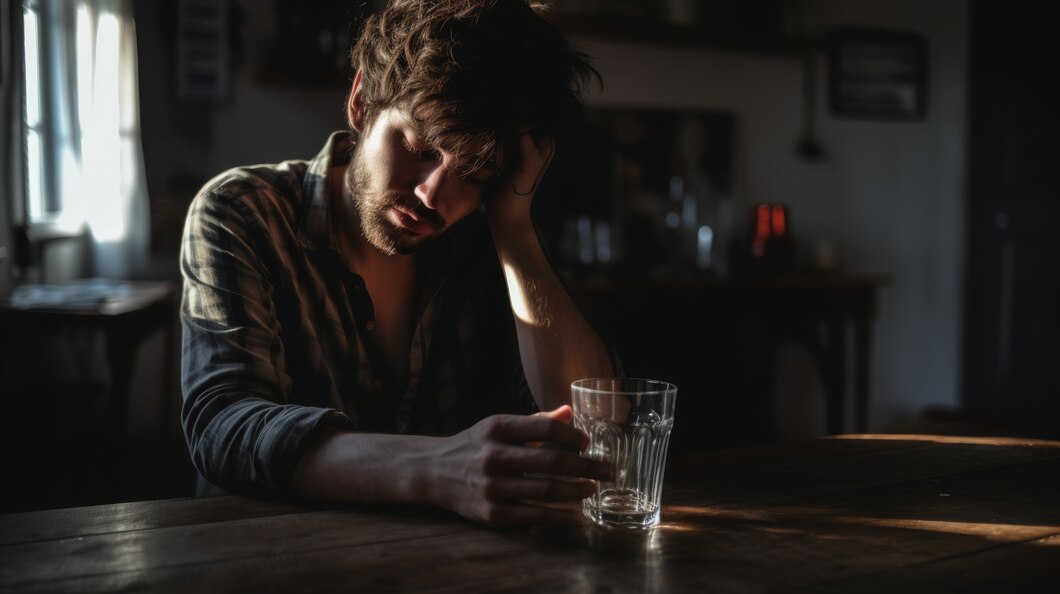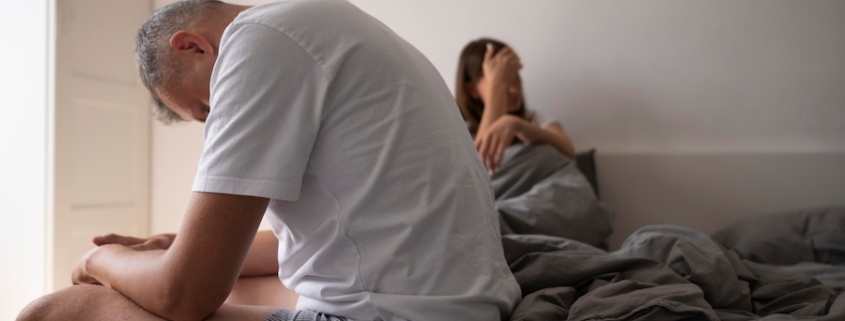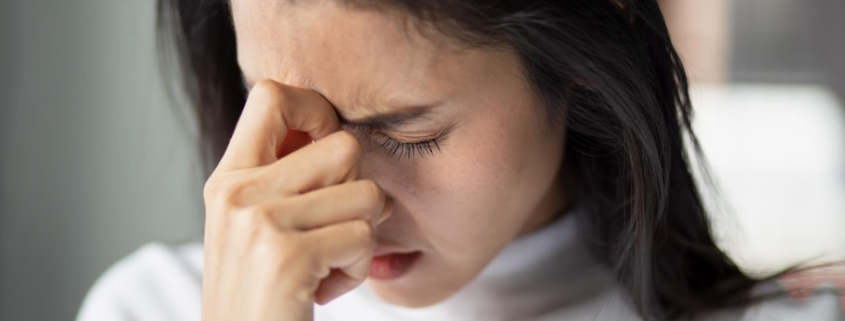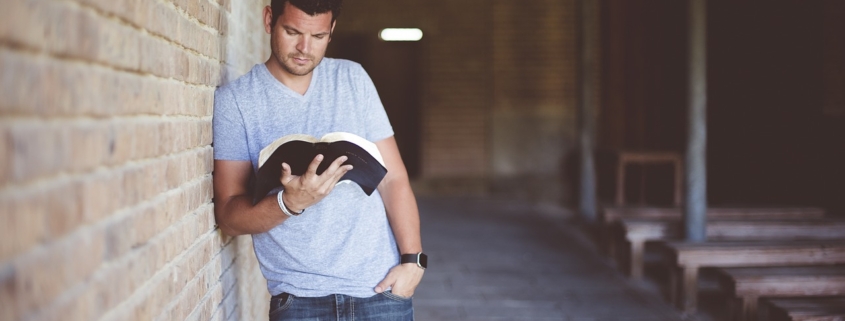Substance abuse can profoundly affect an individual’s life, often starting with subtle signs that may be easily overlooked. Recognizing the symptoms and warning signs of substance abuse is crucial for early intervention and effective treatment. This guide provides an overview of common indicators of substance abuse, helping you identify them in yourself or a loved one. Understanding these signs can lead to timely support and intervention, ultimately aiding in recovery and improving overall well-being.
Understanding Substance Abuse and Its Impact
Substance abuse refers to the harmful or hazardous use of psychoactive substances, including alcohol and illicit drugs, characterized by a compulsive pattern of consumption that leads to significant adverse consequences. The impact of substance abuse extends beyond the individual, affecting family, friends, and social circles. It can lead to deteriorating physical health, strained relationships, financial difficulties, and legal issues.
Understanding substance abuse involves recognizing its signs and the way it alters an individual’s behavior and functioning. The patterns of use, the substance involved, and the individual’s response to the substance all play a role in determining the severity and impact of the abuse. Early recognition of these signs is essential for providing appropriate help and support.
Physical Symptoms of Substance Abuse
Physical symptoms of substance abuse can vary depending on the substance used but generally include noticeable changes in health and appearance. Common physical symptoms include weight loss or gain, changes in appetite, poor hygiene, and unusual body odors. Individuals may also exhibit symptoms such as dilated or constricted pupils, frequent nosebleeds, or track marks from needle use.
Chronic use of substances can lead to more severe health issues such as liver disease, cardiovascular problems, respiratory issues, and neurological impairments. Recognizing these physical symptoms early can help in seeking medical attention and initiating a treatment plan before the issues escalate.
Behavioral Changes Indicating Substance Abuse
Behavioral changes are often among the first indicators of substance abuse. Individuals may exhibit a range of behavioral issues, such as a decline in work or academic performance, increased secrecy, and changes in social circles. They might also engage in risky behaviors, neglect responsibilities, and exhibit sudden mood swings or irritability.
Substance abuse can lead to a significant shift in priorities, where the individual increasingly focuses on obtaining and using the substance. This can manifest as frequent absences from work or social activities, neglect of personal responsibilities, and engagement in illegal or dangerous activities.
Psychological Signs of Addiction
Psychological signs of addiction are crucial in identifying substance abuse. These signs include persistent cravings for the substance, an inability to control or limit use despite negative consequences, and experiencing withdrawal symptoms when not using the substance. Individuals may also exhibit increased anxiety, depression, paranoia, or erratic behavior.
Psychological dependence on a substance often leads to cognitive distortions and a distorted sense of reality, making it difficult for individuals to recognize or admit the extent of their addiction. Understanding these psychological signs is essential for providing effective support and treatment.
Social and Relational Warning Signs
Social and relational warning signs of substance abuse often involve noticeable changes in an individual’s interactions with others. This can include withdrawal from family and friends, strained relationships, and conflicts with loved ones. Individuals may also engage in deceptive behavior, such as lying or hiding their substance use.
Substance abuse can lead to social isolation, where individuals avoid social gatherings or activities they previously enjoyed. They might also experience difficulties in maintaining relationships, resulting in frequent arguments or broken connections with those close to them.
How to Identify Early Warning Signs in Loved Ones
Identifying early warning signs of substance abuse in loved ones requires keen observation and sensitivity. Look for changes in behavior, physical appearance, and social interactions. Early signs might include a noticeable decline in personal hygiene, changes in eating or sleeping patterns, and unexplained financial issues.
It is important to approach the situation with empathy and understanding, offering support and encouraging open communication. Addressing these signs early can help in intervening before the abuse escalates and provide the individual with the necessary resources for recovery.

Financial Issues and Unusual Spending Patterns
Financial issues and unusual spending patterns are often associated with substance abuse. Individuals may experience financial difficulties due to spending significant amounts of money on substances, leading to unexplained debts, borrowing money, or neglecting financial responsibilities.
Unusual spending patterns may include frequent purchases of items related to substance use, such as drug paraphernalia or excessive amounts of alcohol. These financial red flags can be indicative of a larger problem and should be addressed promptly to prevent further financial and personal issues.
Signs of Withdrawal and Overdose
Recognizing signs of withdrawal and overdose is crucial for immediate intervention and safety. Withdrawal symptoms can include nausea, sweating, shaking, and severe cravings, which occur when the substance is not available. Overdose symptoms vary depending on the substance but may include difficulty breathing, loss of consciousness, and seizures.
Immediate medical attention is required for overdose situations, as they can be life-threatening. Understanding these signs helps in providing timely help and seeking emergency medical care when necessary.
Recognizing Substance Abuse in Adolescents and Teens
Substance abuse in adolescents and teens presents unique challenges and may involve different signs compared to adults. Common indicators include sudden changes in academic performance, changes in peer groups, and secretive behavior. Adolescents may also exhibit physical changes such as poor personal hygiene and noticeable changes in weight.
Addressing substance abuse in this age group requires a supportive and non-judgmental approach. It is important to involve healthcare professionals and seek appropriate treatment tailored to the needs of younger individuals.
Differences Between Casual Use and Abuse
Understanding the difference between casual use and abuse is essential for recognizing when substance use becomes problematic. Casual use typically involves occasional consumption without significant negative consequences, while abuse refers to a pattern of use that leads to adverse effects on one’s health, relationships, and daily functioning.
Abuse is characterized by a compulsive need to use the substance, despite knowing the risks and experiencing negative outcomes. Identifying this shift from casual use to abuse can help in intervening early and providing appropriate support.
The Importance of Early Intervention
Early intervention is critical in addressing substance abuse and preventing further complications. Recognizing the symptoms and warning signs of substance abuse allows for timely intervention and access to treatment resources. Early intervention can prevent the escalation of the problem, improve treatment outcomes, and support long-term recovery.
Taking proactive steps to address substance abuse helps individuals receive the care they need and supports their journey towards recovery. It also benefits families and communities by reducing the overall impact of substance abuse.
Recognizing the symptoms and warning signs of substance abuse is vital for effective intervention and support. By understanding these indicators, you can take prompt action to help yourself or a loved one seek the necessary treatment and resources. If you suspect substance abuse or need guidance on how to address it, reach out to us at Couples Rehab for support and assistance in navigating the path to recovery.
FAQ’s
What are the early warning signs of substance abuse to look for in a partner? Recognizing substance abuse symptoms early on is crucial. Common signs include changes in behavior, mood swings, decreased interest in hobbies, financial problems, and neglect of responsibilities.
How can I differentiate between normal stress and substance abuse symptoms? Distinguishing between stress and substance abuse can be challenging. If you notice persistent changes in behavior, mood, or social interactions, it’s essential to pay close attention and consider seeking professional guidance.
What are the physical signs of substance abuse to look for? Physical signs of substance abuse may include changes in appearance, weight loss or gain, neglect of personal hygiene, and physical health problems. These symptoms can vary depending on the substance used.
How can I approach my partner about my concerns regarding their substance use? Open and honest communication is essential. Choose a calm and private setting to express your concerns without judgment. Use “I” statements to share your feelings and observations.
What are the emotional and psychological effects of substance abuse on a partner? Substance abuse can have a devastating impact on relationships, leading to feelings of betrayal, anger, and resentment. It’s important to prioritize self-care and seek support when dealing with these emotions.
How can I encourage my partner to seek help for substance abuse? Offer support and encouragement without enabling their behavior. Educate yourself about treatment options and resources. Consider involving family or friends in the conversation.
What are the long-term effects of substance abuse on relationships? Substance abuse can lead to trust issues, communication breakdowns, and financial strain. It can also damage the overall emotional well-being of the relationship.
How can I protect myself from the negative consequences of my partner’s substance abuse? Setting boundaries, seeking support from friends and family, and considering counseling or therapy can help protect yourself from the negative impact of your partner’s substance abuse.
What are some common excuses people use to hide their substance abuse? Common excuses include blaming stress, peer pressure, or medical conditions. It’s important to be aware of these tactics and trust your instincts.
Where can I find support for partners affected by substance abuse? Support groups like Al-Anon offer a safe space for partners to connect with others facing similar challenges. Therapy and counseling can also provide valuable guidance and coping strategies.
















